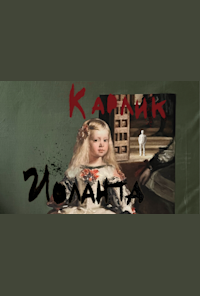The play IOLANTA / KARLIK is a complete work in which two one-act operas are combined visually, dramaturgically and musically. The Dwarf, according to the creators, is a continuation and development of Iolanta, which is emphasized by the repetition of the finale of Tchaikovsky's opera at the beginning of the second act.
The performance is based on the paradigm of blindness and insight. Here, two parables about people who are completely ignorant are connected and rethought - the blind girl Iolanthe, who does not know that she is blind, and the Dwarf, who is not aware of her deformity. And if Iolanta is healed of blindness thanks to love, then the fate of the Dwarf is tragic: the hero dies when he discovers the truth about his appearance and the cruel attitude towards him of those around him, especially the Infanta.
The performance of the Novaya Opera is devoid of fabulousness and a touch of antiquity. The action takes place in the modern world, in an instantly recognizable setting: a fashionable private medical clinic (Iolanthe) and a luxurious aristocratic party, as if in the film La Dolce Vita by Federico Fellini (Dwarf).
The action takes place in two parallel realities at once: the creators of the performance build one into the other, like a small geometric figure into a large one. On the proscenium (in a large space) - opera artists, and in the depths (in a small space) - video ("Iolanta") and puppets ("Dwarf").
"Iolanta" - the last opera by P.I. Tchaikovsky: it was written in 1891 based on the drama by G. Hertz "The Daughter of King Rene". The premiere took place in 1892 at the Mariinsky Theatre. Thanks to the plot, permeated with religious motifs of insight and healing love, and especially melodic musical language, this one-act opera is considered the lyrical culmination of the composer's work.
Alexander von Zemlinsky's opera The Dwarf was created based on Oscar Wilde's fairy tale The Infanta's Birthday. The composer worked on the score from 1919 to 1921, the opera was first performed in 1922 in Cologne. In the story of the rejected and ridiculed dwarf, Zemlinsky's personal drama was symbolically embodied - the break in relations with Alma Schindler (later Mahler). The "Endless" Wagnerian melodies, luxurious Mahlerian orchestration and the individual skill of Zemlinsky, an outstanding conductor and teacher, were combined in The Dwarf.
The duet of Iolanta by Tchaikovsky and The Dwarf by Zemlinsky gives a complex and multifaceted picture of late Romantic opera.





